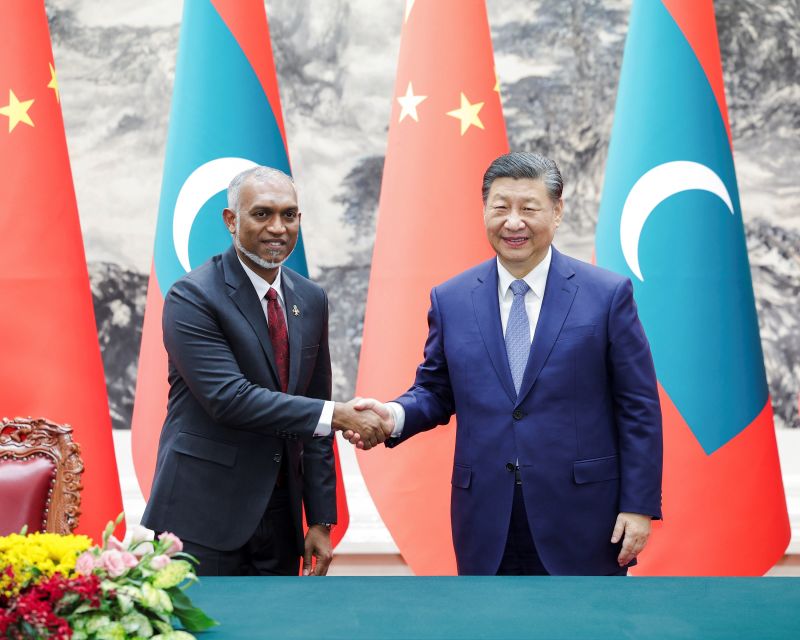The Maldives, a small island nation in South Asia, recently amplified its strategic collaboration with China by signing a historic military pact. This move is startling due to the years-long strategic ties the Maldives enjoyed with India. The agreement with China therefore signifies an enormous geopolitical shift, ultimately leaning more towards Beijing and moving away from New Delhi.
The military agreement between China and the Maldives will provide for closer military cooperation and exchanges, offering a frame of reference for increased interactions between the defense forces of both countries. This includes joint military exercises, high-level defense exchanges, personnel training, and intelligence sharing. Some believe that the pact may also pave the way for China to establish a military base in the Maldives in the future.
This strategic shift towards China can be credited to the increasing economic ties between the two nations. Over the years, China has significantly boosted its investment in the Maldives, funding critical infrastructure projects, including a new runway for the Maldivian international airport and hundreds of new luxury apartments in the Maldivian capital, Malé. This economic clout has gradually translated into a more substantial political influence.
Furthermore, the initiation of the military pact coincides with the Chinese Belt and Road Initiative, an ambitious development strategy aimed to boost economic growth across the Asia-Pacific region. Interestingly, the Maldives falls under this regional scheme; hence, this military pact could potentially stand as a pillar supporting China’s regional economic ambitions.
On the other side of this geopolitical equation, the strategic shift of the Maldives has led to an apprehensive response from India. India has been the Maldives’ closest ally for decades and has heavily invested in the Maldives’ security sector. The new pact signifies a major severance from this established relationship.
Furthermore, India perceives China’s expansionist policies as a challenge to its regional security. Hence, India is greatly concerned about the potential of this new agreement to augment China’s military footprint in the Indian Ocean region, a critical strategic area for India. In addition, this move by the Maldives creates further disagreements in Indo-Maldivian relations, which have already been shaky due to recent political developments.
However, despite its objections, India is evidently putting effort into retaining its influence within the Maldives. The Indian government maintains strong diplomatic relations with Maldives’ political leaders, supplies significant amounts of financial aid, and has constantly engaged in numerous joint exercises with the Maldivian Defense Forces.
In conclusion, the military pact between the Maldives and China is not merely a bilateral military agreement but represents a broader geopolitical shift in the South Asia region. It symbolizes the Maldives’ strategic tilt towards China, driven primarily by increased economic ties and within the frame of China’s regional economic projects. At the same time, it underscores the challenges and changing dynamics of India’s foreign relations in its historical sphere of influence. Nevertheless, despite the shifting regional alliances, it is still early to predict long-term effects and whether this new agreement will significantly alter existing strategic contours in South Asia.




